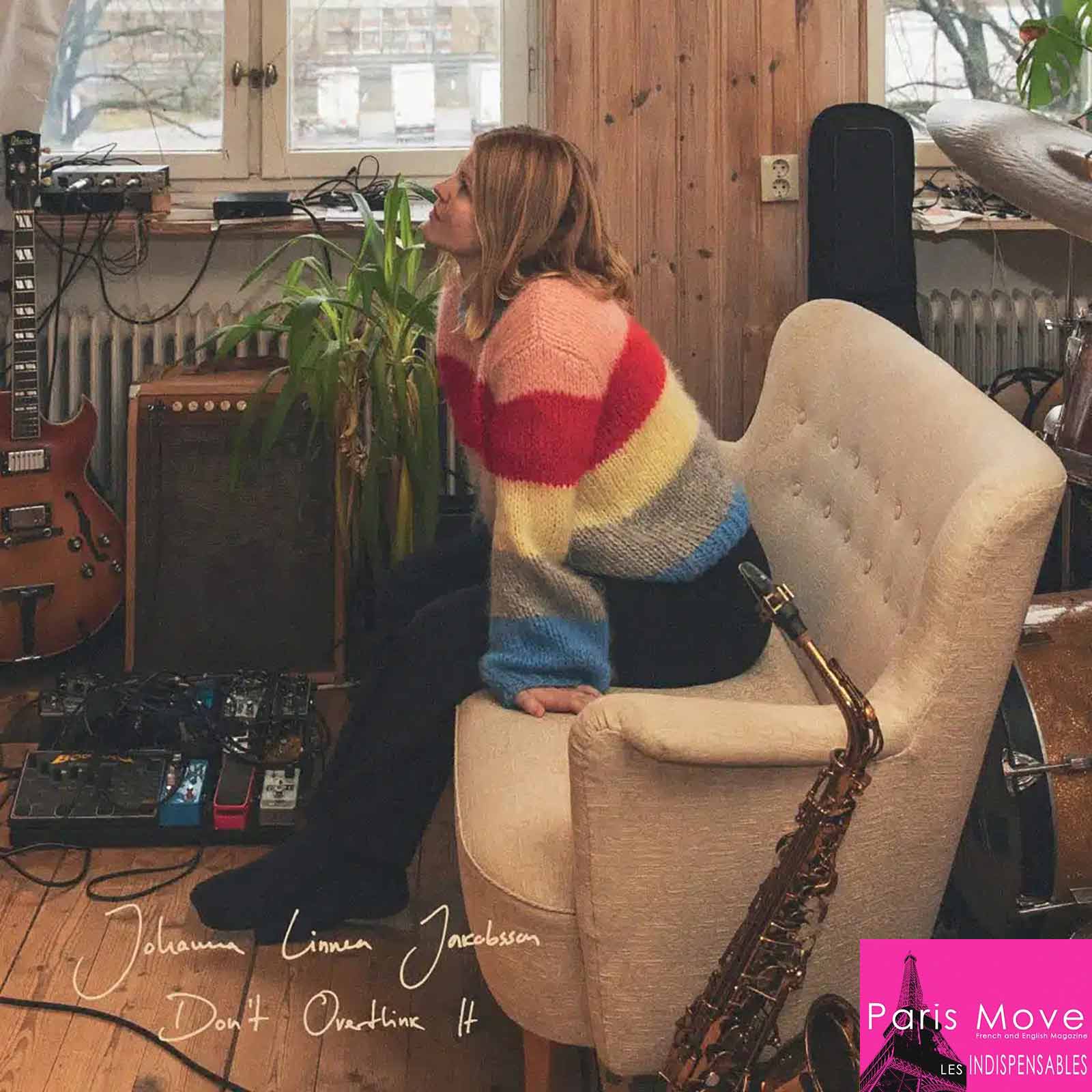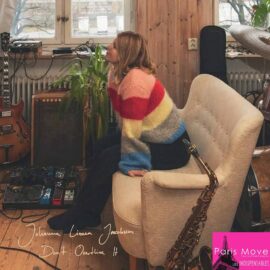| Jazz |

Johanna Linnea Jakobsson: The Razor’s Edge of a Disenchanted Generation
In a cultural moment defined by noise, the relentless churn of digital content, the looping exhaustion of modern life, Johanna Linnea Jakobsson offers something rare: stillness. Her music does not shout to be heard. It breathes. It lingers. It waits for you to listen.
Jakobsson, a young composer, saxophonist, and vocalist of Danish and Swedish heritage, is one of those rare artists who seem both timeless and unmistakably of their time. She holds high the poetic form, even as she stands witness to a generation adrift, a generation whose dreams, once lit with promise, now flicker uncertainly in the winds of global anxiety, fractured politics, and existential fatigue.
Her art inhabits a space between genres, the soft melancholy of jazz, the intimacy of folk, and the fragile pop sensibility that carries the listener somewhere between heartbreak and revelation. In her work, emotion is sculpted with the precision of a razor’s edge.
An Artist Between Worlds
Jakobsson carries within her the quiet duality of her roots, the introspection of the North, the clarity of the Scandinavian light, the solitude of long winters. I first discovered her music in 2022, almost by accident, through her debut album Alone Together. That record, with its understated grace, felt like a diary written in sound, an attempt to make sense of isolation, of the paradox of being surrounded yet alone.
Listening to her, I found not merely a musician but a chronicler, an artist who writes the emotional history of her time, translating fleeting impressions into melody. Her voice, airy yet deliberate, speaks with the kind of honesty that makes silence feel meaningful. It’s the kind of voice that does not dominate the room but transforms it.
Jakobsson belongs to a lineage of singer-poets, those who believe that music can still hold truth, however fragile. Her songs give voice to a youth often muted by uncertainty. She does not claim to have answers, nor does she moralize. Instead, she observes, absorbs, and reimagines the chaos of the world around her, turning ordinary moments into quiet revelations.
Between Jazz and Introspection
In 2023, Jakobsson released an EP of her favorite pieces from the jazz repertoire, reinterpreted with her distinctive softness, less homage than reinterpretation, a way of reclaiming tradition through intimacy. That same year, she composed the original score for the Emmy Award–winning Danish series One of the Boys, a project that demanded a different kind of emotional precision. The resulting soundtrack, released as an EP to coincide with the show’s premiere, revealed her talent not only as a performer but as a narrative architect, capable of shaping emotion through tone and silence alike.
Her collaborator on the project, Swedish drummer and producer John Fernold, would go on to co-produce her second album, Don’t Overthink It. That record, which Jakobsson considers her first true artistic statement, consists entirely of original compositions, songs that feel carved from her own uncertainty.
Don’t Overthink It: The Courage of Vulnerability
There is something deeply brave about Don’t Overthink It. To release an album made of entirely original material is to expose oneself completely, no covers to hide behind, no borrowed words, no masks. Jakobsson approaches that exposure with quiet courage.
Her fragility is deliberate, almost sculptural. Each imperfection is an element of design, every hesitation a kind of truth. The album is an exploration of what it means to feel too much, to think too deeply, and yet to keep creating. It is a meditation on overthinking itself, the way thoughts spiral and blur until they become something beautiful.
Listening to it, one is reminded of the etchings of Solombre: imaginary landscapes rendered in fine, deliberate strokes, cold and distant yet suffused with longing. Jakobsson’s songs share that quality, the ability to turn distance into tenderness, to find poetry in the spaces between.
The Sound of a Generation Thinking Too Much
Some music asks to be heard; Jakobsson’s demands to be seen. Her songs unfold like paintings, works of sound and silence that require patience. Her phrasing, the way her voice drifts into air and dissolves, creates shades and textures like light falling on rough glass.
They are contemporary folktales for an urban age, stories of lost identities, of wandering souls searching for meaning in a time when truth itself seems unstable.
She writes for a generation that has inherited more questions than certainties. A generation that scrolls endlessly yet still feels unseen. Her music does not console so much as reflect, a mirror held up gently, showing us the contours of our confusion.
A Voice Without Pretension
Jakobsson never lectures. She doesn’t tell you what to think. She merely asks you to feel. Her song Too Slow is a perfect example of this delicate tension, lyrics that capture both resignation and defiance, intimacy and distance:
Think all those times
Where I just lie and try to make sense of it all
Wish I could travel back in time
But no one travels back in time.
Yeah I know you’ve been running
And I know what you’ve done
I just don’t know if you got it
Or if you ever did at all.
Even if you think you lost it,
You might just go and get it all.
It’s not a song about regret; it’s a song about the impossibility of returning, a meditation on time, memory, and the strange, relentless movement of life.
More Than an Artist: A Witness
Many young musicians today strive for poetry, but few inhabit it as naturally as Jakobsson does. Her music isn’t embellished; it’s distilled. She doesn’t perform emotion, she reveals it, layer by layer, until what remains feels both deeply personal and universally shared.
In an era where everything is filtered, optimized, and performed, her authenticity feels radical. She does not seek to explain the world, she simply reflects it, translating chaos into something momentarily whole.
Johanna Linnea Jakobsson is, in essence, a poet who sings, a journalist of feeling, a witness to her generation’s quiet disillusionment. Her music reminds us that truth still exists, not as proclamation, but as presence.
And perhaps that is what makes her work so vital: it reminds us that art, at its best, is not an escape from life but a mirror to it. A place where, if we listen closely enough, we might just hear ourselves again.
Thierry De Clemensat
Member at Jazz Journalists Association
USA correspondent for Paris-Move and ABS magazine
Editor in chief – Bayou Blue Radio, Bayou Blue News
PARIS-MOVE, November 7th 2025
Follow PARIS-MOVE on X
::::::::::::::::::::::::
Musicians :
Johanna Linnea Jakobsson | vocals and saxophone
Olof Wullt | electric guitar
Jesse Emmoth | acoustic piano and rhodes piano|
Simon Petersson | double bass
John Fernold | drums and acoustic guitar
Track Listing :
Grow
Time
Work
Too Slow
Out Of Mind
Spring
The Net
Better Off

